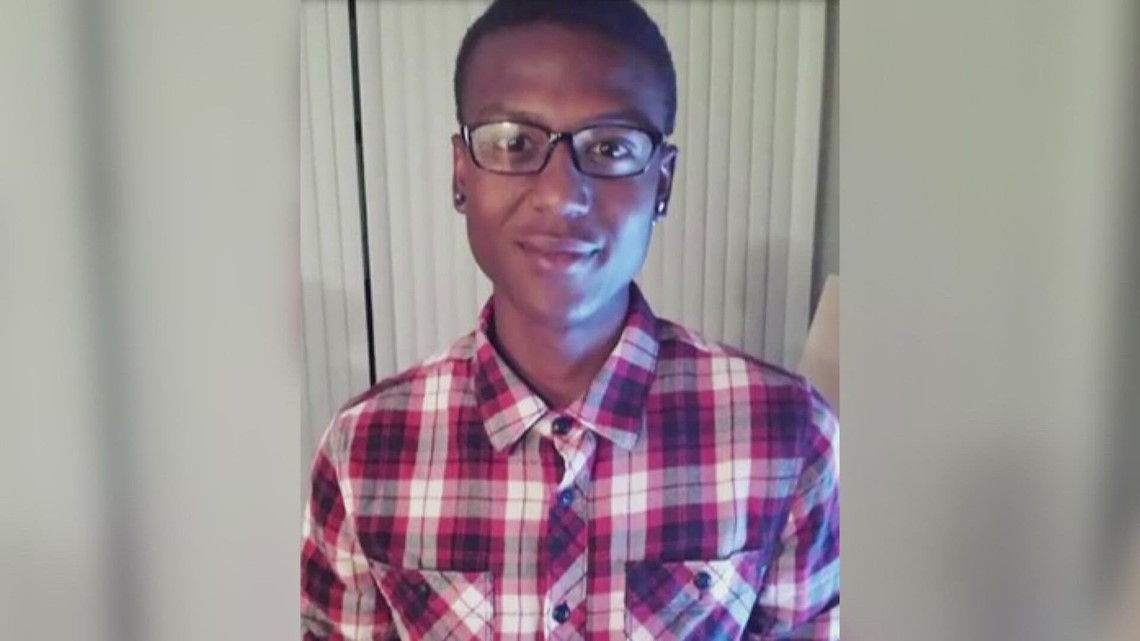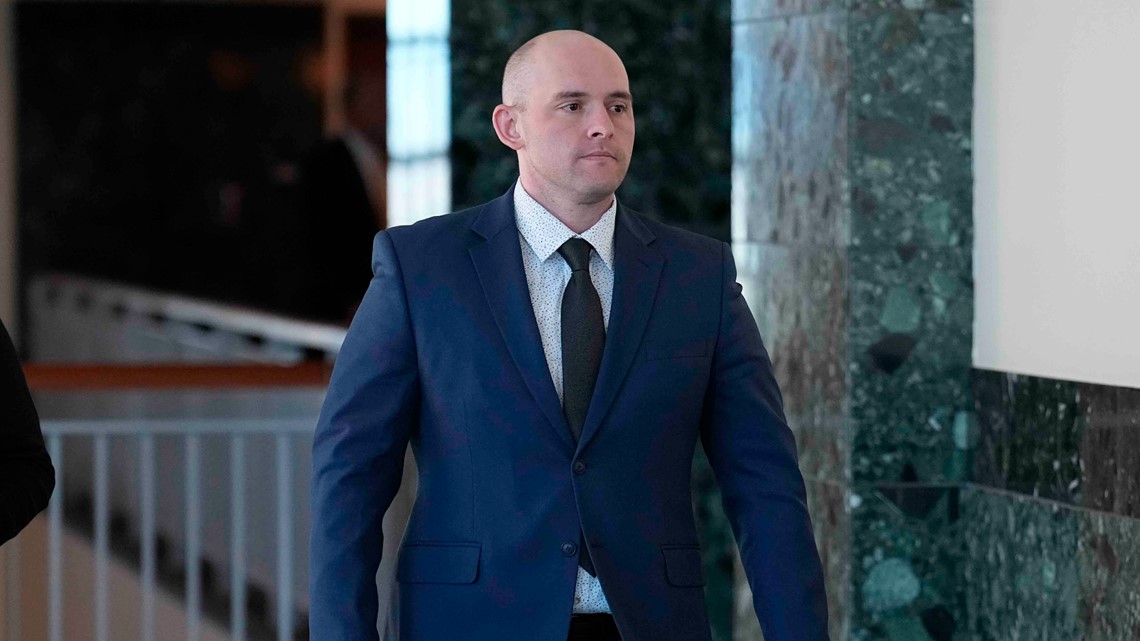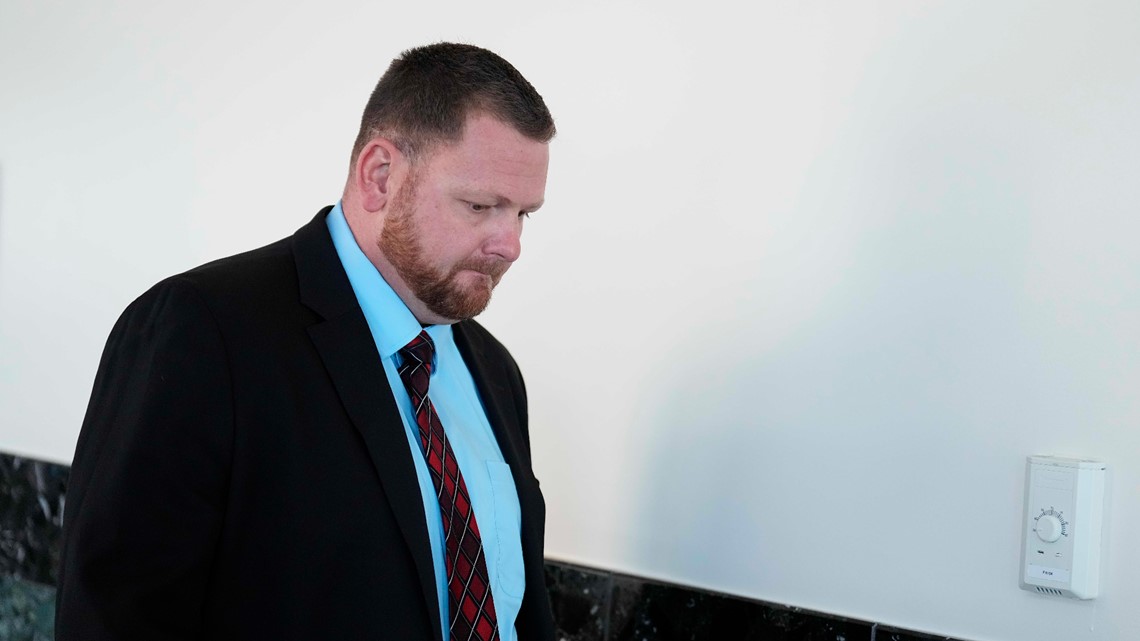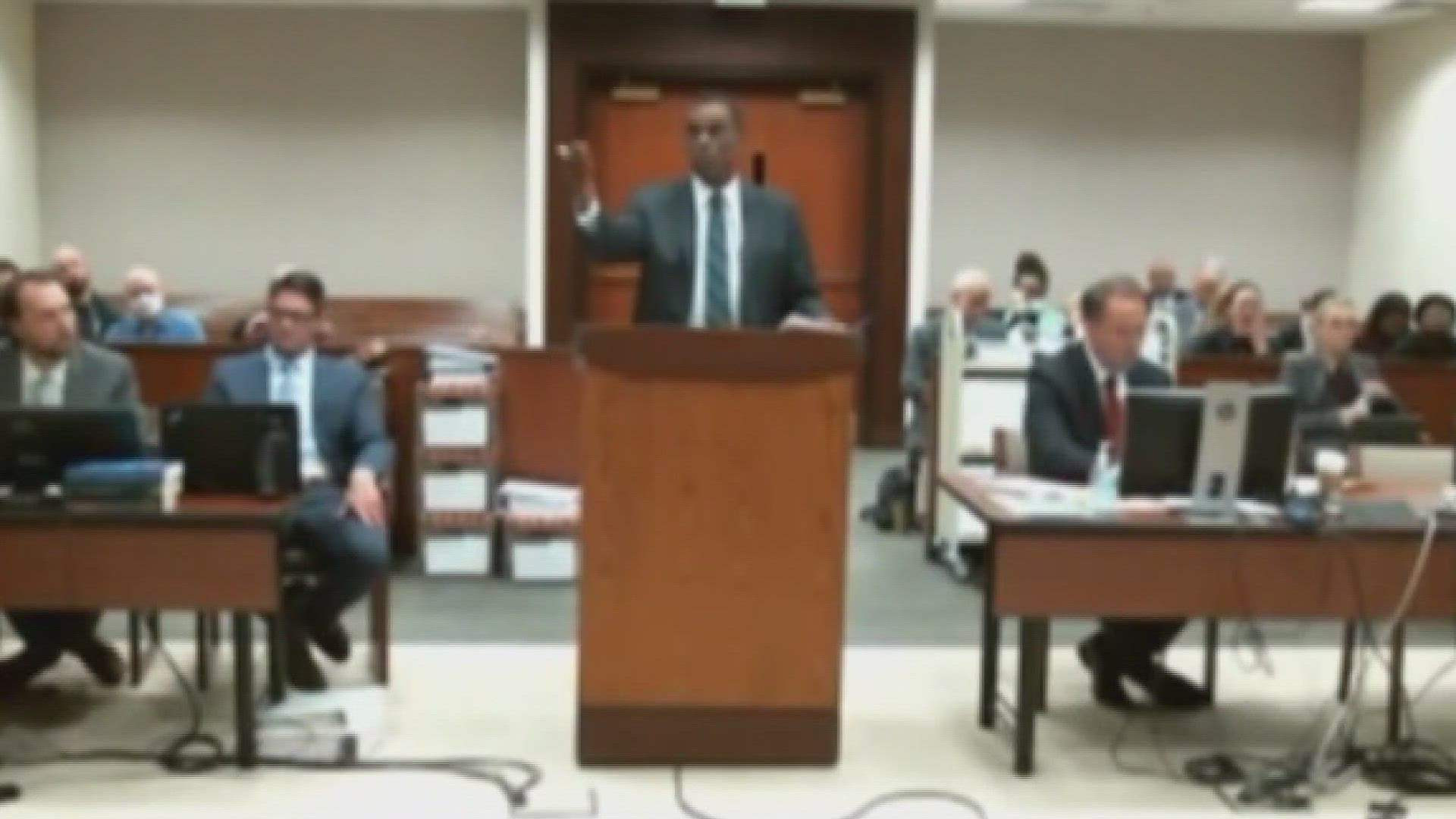AURORA, Colo. — Prosecutors used body-worn camera footage on Friday to paint a minute-by-minute picture of how Elijah McClain’s condition deteriorated after he was taken to the ground by officers but prior to him being injected with ketamine - and his heart stopping in an ambulance.
"It’s pretty clear ... shortly after the administration of ketamine, we have video evidence that he’s really not adequately breathing," said Dr. David Beuther, a pulmonary care specialist at National Jewish Health. "We see some respiratory movement but they are clearly not effective to support life."
Suspended officer Randy Roedema, 41, and former officer Jason Rosenblatt, 34, are among five people indicted in 2021 in connection with McClain's death. Both are charged with reckless manslaughter and second-degree assault.
A third officer and two paramedics were also indicted and will go to trial later this year.
On Aug. 24, 2019, a teenage boy called 911 and relayed that he saw McClain wearing a coat and mask and acting "suspicious." Less than a minute after police arrived, McClain was taken to the ground and engaged in a struggle with Roedema, Rosenblatt, and the third officer. During that struggle, McClain was placed in a carotid hold, which can cut off the oxygen supply to the brain.
Later that night, paramedics injected McClain with the sedative ketamine. His heart stopped and he later died.
Beuther was on the stand Friday as prosecutors played videos from the officers' initial encounter with McClain to the minutes before paramedics arrived.
After each video, he was asked about his observations. He described watching McClain go from someone speaking in full sentences to someone “minimally responsive” by 11 p.m. just prior to being given ketamine.
"He's taken a dramatic turn for the worse in overall appearance," said Beuther. "He's hardly moving, barely speaking."


Beuther also testified the video shows McClain breathing very heavily. He described him as almost panting.
"When you're breathing really hard, you don't have time to stop breathing and swallow. You either swallow or you can breathe, you can't do both at the same time," he said.
"So the risk here, that I'm concerned about is if you're breathing that hard you're eating food, or trying to drink, or vomiting, when you're breathing that hard, there is not enough time to stop and make sure you're covering your throat to prevent something from going down the wrong way to prevent something from going into your lungs."
He said there was evidence that McClain was aspirating -in this case, inhaling his own vomit into his lungs- prior to being given ketamine. He came to that conclusion after examining the mask McClain was wearing.
"In my medical opinion," he said. "He aspirated before the ketamine. That is not something I can give 100% proof about. The rationale for this is he had this mask on. We know he vomited with the mask on."
Beuther said another concern for him was the position McClain was in. At the time, he was handcuffed on the ground with his hands behind his back.
"The more you vomit, the higher the risk of aspiration," he said. "The other risk is if you can't lean forward, sit up straight, take a big breath in, and cough, you can't clear this stuff out of your airways."
He explained that he believed the best explanation for McClain's worsening condition was hypoxia or a lack of oxygen likely caused by the fluid filling his lungs.
Defense attorneys began their cross-examination of Beuther late Friday. That hammered in on what they believed were inconsistencies between an initial report Beuther wrote in 2021 and a supplemental report in 2023.
"I thought I did a pretty nice job of talking about the aspiration pneumonia, all the other medical problems that translated into his risk and ultimately he had a better chance of living than dying but he still had a lot of risk before the ketamine and then the ketamine is what really killed him," said Beuther.
"To be clear, you just told this jury, that ketamine killed him? That's your opinion, right? questioned attorney Harvey Steinberg who represents Rosenblatt.
"I hope they heard everything I said and not just that," Beuther responded.
There will be no court on Monday; cross examination of Beuther will resume Tuesday at 9 a.m.
Earlier in the day, the doctor who declared Elijah McClain brain dead days after he was confronted by the officers testified that McClain's CAT scan showed "an injury pattern consistent with not getting enough oxygen to the brain."
Dr. Mark Moss, who specializes in pulmonary care, testified that McClain was brought to UCHealth late on Saturday, Aug. 24, 2019, and that he took over as his primary care physician on Tuesday, Aug. 27. Moss said that chest X-rays and CAT scans were done on McClain.
"It's a very common thing that somebody who is as sick as Mr. McClain was to have chest radiographs taken," he said.
Moss then went on to describe numerous tests he ran on McClain which prompted him to conclude that he was brain dead. He said that things like the urge to breathe are the most primitive brain functions and that when someone is taken off a breathing machine they should have the urge to breathe.
"We've all done it," he said. "If you try to hold your breath - at some point you can’t hold your breath any longer. You have to take a breath."
Moss said he removed McClain from the breathing machine twice - once for roughly four minutes and a second time for roughly six minutes. He had no breathing activity during those times.
Based on those tests and other testing looking for basic reflexes such as blinking or pupil restriction, he said he declared McClain brain dead at 3:31 p.m. on Aug. 27, 2019.
On cross-examination, the defense asked just one question, whether Moss was speculating that either of the defendants had caused McClain's injuries. He said he was not.
Prosecutors alleged in their opening statements that the officers did not follow procedures or policies after McClain had been placed in the carotid hold even though both had been recently trained on its potential dangers. They said the officers were required to check McClain's vital signs but never did.
Aurora Police later banned the use of the carotid hold.


Defense attorneys for Roedema and Rosenblatt contend that it wasn't their actions that caused McClain's death. They said McClain died after the paramedics injected him with too much ketamine.
Prior to Moss taking the stand on Friday, jurors were shown numerous clips of body-worn camera footage from Roedema and Rosenblatt. The videos included one slow-motion clip of a portion of a clip from Roedema's footage.
In one clip, McClain is heard saying, "I can't fix myself, help."


Jeremy Cooper and Peter Cichuniec, the two paramedics who responded to the call, are set for trial in November. They are each charged with reckless manslaughter and numerous counts of assault.
Another officer, Nathan Woodyard, who was the first to respond to the call about McClain, was also indicted on a charge of reckless manslaughter. His trial is set to begin in mid-October.
SUGGESTED VIDEOS: Elijah McClain death

